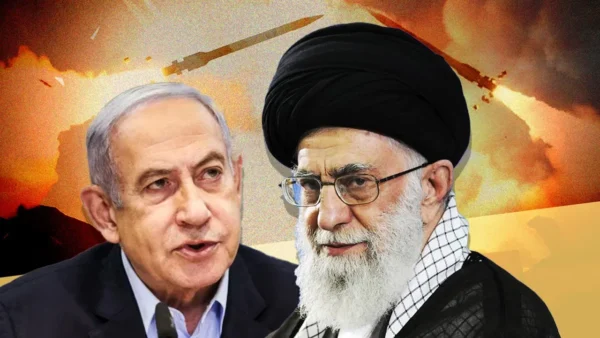Tel Aviv: Recent leaks have exposed alleged plans by Israel to launch a strategic offensive against Iran, a development that has sent shockwaves through the global political and security landscape. The New York Times has reported on a leaked document from the U.S. National Geospatial-Intelligence Agency, providing details of Israel’s preparations for a potential military operation targeting Iran. These revelations come amidst rising tensions in the Middle East, with both nations issuing stark warnings and intensifying military activities.
The Leaked Documents
The leaked materials, which surfaced on pro-Iran Telegram accounts on October 15 and 16, include satellite imagery and operational outlines attributed to Israeli defense forces. Two significant documents stand out:
- Military Exercises and Operations: This document details Israel’s air-to-air refueling drills, search-and-rescue missions, and missile system calibrations. These activities are reportedly part of preparations for a large-scale aerial campaign targeting Iranian facilities.
- Strategic Asset Deployment: The second document outlines Israel’s plans to position weapons and military assets at key locations, hinting at a readiness to launch an attack.
The evidence, supported by satellite imagery, indicates intense military activity, underscoring Israel’s readiness for a potential confrontation.
Background of Escalating Tensions
The conflict stems from long-standing animosities between the two nations, exacerbated by recent events. On October 1, Iran reportedly launched over 200 missiles into Israeli territory, an act that escalated the region’s volatility. Israel, known for its advanced defense systems, successfully intercepted many of these missiles, but the attack served as a stark reminder of the enduring threat posed by Iran.
In response, Israel appears to have intensified its military preparations, with a focus on neutralizing perceived threats from Tehran.
Strategic Implications
Israel’s alleged plans include:

- Air Superiority: Enhanced air force capabilities for a swift and decisive strike.
- Preemptive Measures: Deployment of missile systems to neutralize potential counterattacks.
- Resilience in Retaliation: Search-and-rescue missions to manage post-strike contingencies.
Such measures signal a calculated approach aimed at achieving maximum operational success while mitigating risks to Israeli forces.
Iran’s Countermeasures
Iran has responded to the leaks with defiance, warning of severe repercussions if Israel proceeds with an attack. Iranian officials have reportedly placed their armed forces on high alert, bolstering defense mechanisms around key military and nuclear facilities. Tehran’s leadership has reiterated its capacity for a powerful counterstrike, framing any Israeli aggression as a provocation that will be met with “unprecedented consequences.”
Regional and Global Ramifications
The prospect of an Israeli attack on Iran could destabilize the Middle East, with implications for global security and economic stability. Key questions arise about the role of international actors, including the U.S., Russia, and China, in mediating or exacerbating the situation.
The leaked documents reveal a precarious juncture in Middle Eastern geopolitics. While Israel views its actions as preemptive and necessary for national security, Iran’s stance as a resilient adversary raises concerns about an all-out regional conflict. As both nations prepare for potential escalation, the international community watches with bated breath, aware that the outcomes could reshape the region’s future.









